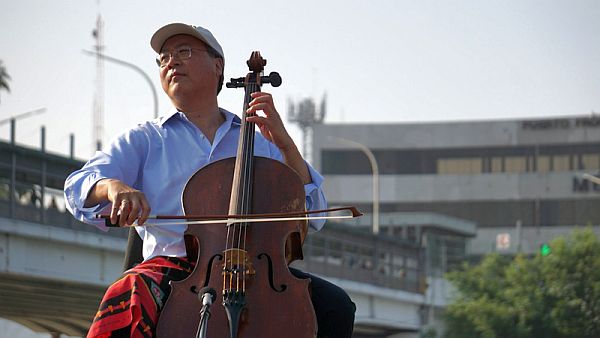Nuevo Laredo, Mexico - Legendary cellist Yo-Yo Ma performed Johann Sebastian Bach's "Suite No. 1 for Unaccompanied Cello" along the U.S.-Mexico border last Saturday as part of an event to celebrate the relationship between the two border cities of Laredo, Texas, and Nuevo Laredo, Mexico.
According to NPR, the renowned cellist performed in a park in Laredo near the Juárez-Lincoln International Bridge, which connects the United States and Mexico.
The portions of "Suite No. 1 for Unaccompanied Cello" that Ma performed were part of his Bach Project, which uses the centuries-old classical music to explore cultural connections.
"As you all know, as you did and do and will do, in culture, we build bridges, not walls," Ma said Saturday, according to the publication. "I've lived my life at the borders. Between cultures. Between disciplines. Between musics. Between generations."
According to NPR, the overall theme of the event, called the "Day of Action," was to appreciate the connection between the two sister cities.
The mayor of Laredo, Pete Saenz, said Saturday that despite the bridge separating the two cities, the border sees itself as one community. "And although people may perceive us as being so different, we're not," he said, according to NPR.
"Here the border is extremely unique in that it's one organism. I've always said we're interdependent, interconnected. We survived because the border side survives, especially here on the border area," he added.
Original article


